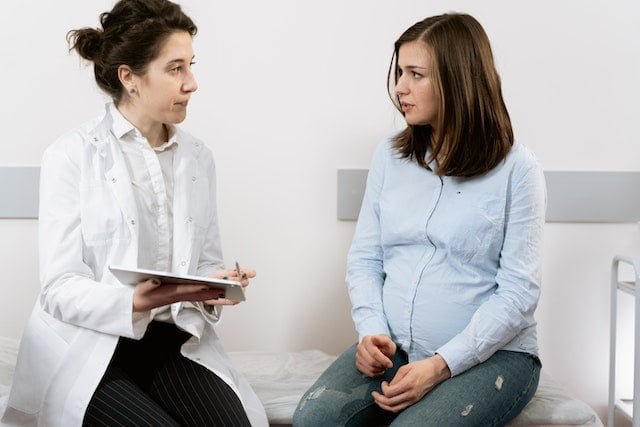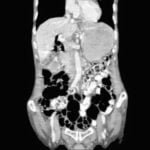
UPPER GI ENDOSCOPY- BASICS YOU NEED TO KNOW
| Contributed by Dr. Vipul Agarwal M.B;B.S MD(Internal Medicine), FAGE, CPCDM(RSSDI) Consultant physician & Diabetologist Unique Healthcare, Maitri Clinic Jaipur, Rajasthan, India You can find me at- E-mail: vipul.msrmc@gmail.com linkedIn/ Instagram/ facebook / Google What is upper endoscopy? Upper endoscopy is a procedure that lets a doctor look at the lining of the upper digestive tract The upper digestive tract includes the oesophagus (the tube that connects the mouth to the stomach), the stomach, and the duodenum (the first part of the small intestine). You might have an upper endoscopy if you have: ●Pain in your upper belly that you cannot explain ●A condition called “acid reflux” ●Nausea and vomiting that has lasted a long time ●Black bowel movements or blood in your vomit ●Trouble swallowing or a feeling of food getting stuck in your throat ●Abnormal results from other tests of your digestive system ●Swallowed an object that you should not have swallowed ●Had growths or ulcers in your digestive tract, and your doctor wants to follow up
How do I prepare for an upper endoscopy? Your doctor will give you instructions about what to do before an upper endoscopy. Before your procedure, your doctor will do an exam. In some cases, they might also send you to get blood tests or other tests. Your doctor will also ask you about your “health history.” This involves asking you questions about any health problems you have or had in the past, past surgeries, and any medicines you take. Tell them about: ●Any medicines you are taking – This includes any prescription or “over-the-counter” medicines you use, plus any herbal supplements you take. It helps to write down and bring a list of any medicines you take, or bring a bag with all of your medicines with you. ●Any allergies you have ●Any bleeding problems you have – Certain medicines, including some herbs and supplements, can increase the risk of bleeding. Some health conditions also increase this risk. You will also get information about: ●Eating and drinking before your procedure – In some cases, you might need to “fast” before the procedure. This means not eating or drinking anything for a period of time. In other cases, you might be allowed to have liquids until a short time before the procedure. Whether you need to fast, and for how long, depends on the procedure you are having. ●What help you will need when you go home – For example, you might need to have someone else bring you home or stay with you for some time while you recover. Ask the doctor or nurse if you have questions or if there is anything you do not understand. What happens during an upper endoscopy? When it is time for the procedure: ●You will get an “IV,” which is a thin tube that goes into a vein. This can be used to give you fluids and medicines. ●You will get medicines through the IV to make you feel drowsy and relaxed. In some cases, doctors might use anaesthesia to put you to sleep for the procedure. ●The doctor will put a thin tube with a camera and light on the end into your mouth. The tube will go down into your oesophagus, stomach, and duodenum. They will look for irritation, bleeding, ulcers, or growths. During an upper endoscopy, your doctor might also: ●Do a test called a biopsy – During a biopsy, a doctor takes a small piece of tissue from the lining of the digestive tract. (You will not feel this.) Then, they look at the tissue under a microscope. ●Treat problems that they see – For example, a doctor can stop bleeding or sometimes remove a growth. They can also widen any narrow areas of the oesophagus. Narrow areas of the oesophagus can cause trouble swallowing. An upper endoscopy usually takes about 15 to 30 minutes. What happens after an upper endoscopy? After your procedure, you will be taken to a recovery room. The staff will watch you closely as your anaesthesia wears off. As you recover: ●You might feel groggy or confused for a short time. ●You might feel bloated. ●Most people can eat as usual. ●If you get medicines to relax, your doctor will recommend that you do not drive or go to work for the rest of the day. ●Your doctor will tell you when to start taking any medicines that you had to stop before the test. What are the risks of upper endoscopy? Your doctor will talk to you about all of the possible risks, and answer your questions. Possible risks include: ●Food from the stomach getting into the lungs ●Bleeding, for example, after a growth is removed ●Getting a tear in the digestive tract lining ●Having redness or swelling of the skin around the IV When should I call my doctor or nurse? Call your doctor immediately if you have any of the following problems after your upper endoscopy: ●Belly pain that is much worse than gas pain or cramps ●A bloated and hard belly ●Vomiting ●Fever ●Trouble swallowing or severe throat pain ●Black bowel movements ●A “crunching” feeling under the skin in your neck
View in browser :The Health Guide |
Join the mailing list!
Get the latest articles delivered right to your inbox!


